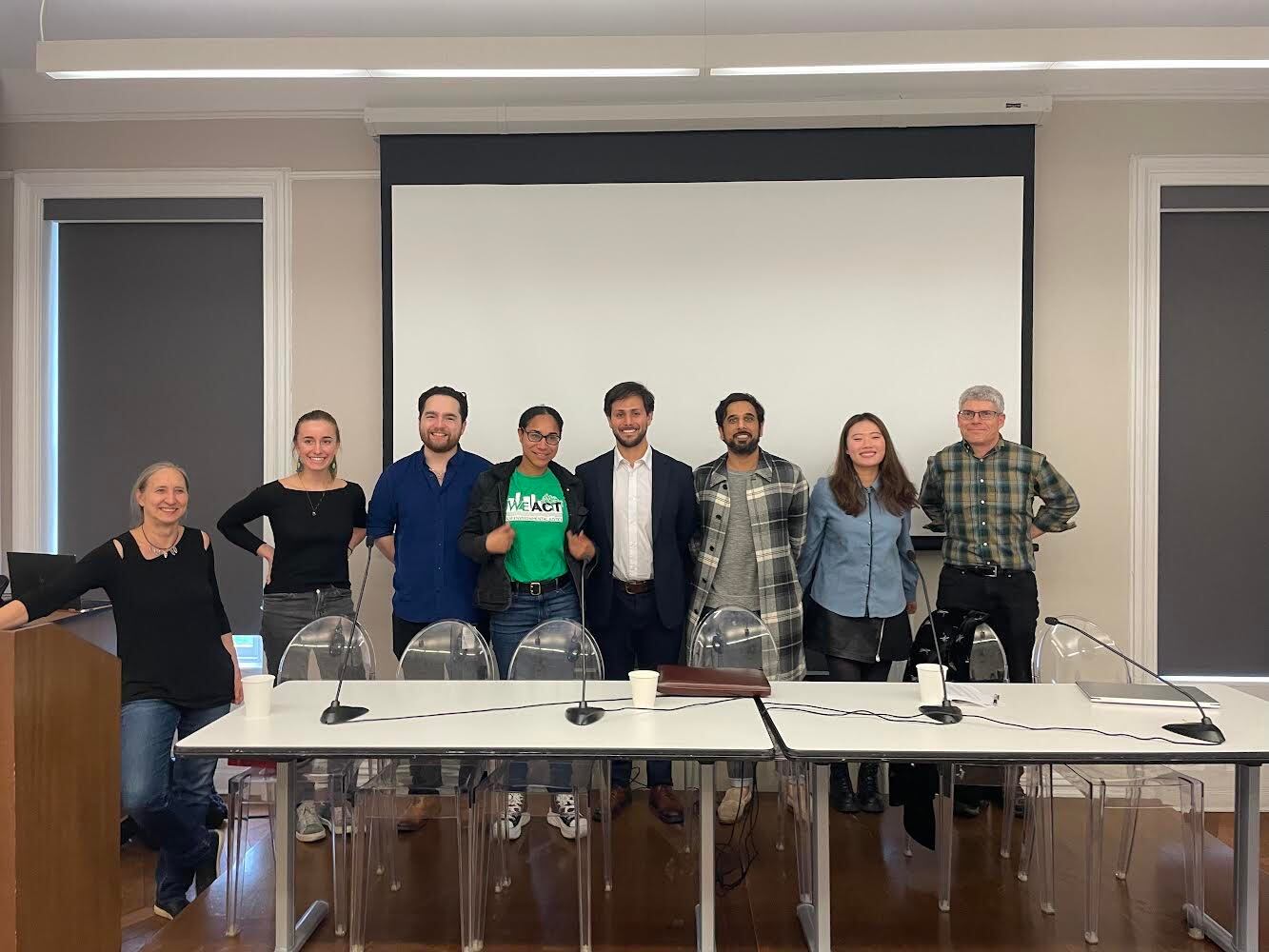City News | Health and Environment
Columbia and City College hold second environmental justice summit
The summit featured two panels on student activism and environmental justice research, as well as walking tours through West Harlem.

Organizers hope to continue to host the event next year and reach more students interested in environmental advocacy.By Surina Venkat • April 15, 2024 at 2:57 AM
By Surina Venkat • April 15, 2024 at 2:57 AM
Columbia and the City College of New York held their second joint Harlem Environmental Justice Summit on Thursday, drawing students, local nonprofits, and a representative from the New York City Mayor’s administration.
The summit included two panels that took place in City College’s North Academic Center and Columbia’s Buell Hall. In between the two panels, attendees traversed West Harlem on walking tours, one of which was led by environmental advocacy nonprofit WE ACT.
Charlotte Biocchi, GS ’24, and Ali Syed, an adjunct lecturer in sociology at CUNY, were the event’s main organizers. Biocchi said she got involved with the summit through her work at Columbia’s Climate School and as the president of Sunrise Columbia, a student environmental advocacy organization.
“I think it’s important and interesting for Sunrise Columbia also to like, engage more in external organization and, more precisely, groups from Harlem because … we don’t really do that kind of work on a daily basis,” Biocchi said.
Syed learned of the event through his work in the environmental justice working group of CUNY’s Professional Staff Congress. The working group had been involved in holding the summit’s first iteration last year, the Sustainability Action Summit. He said one of his goals for the summit was to provide a forum for students to engage in dialogue with each other about their work in environmental advocacy.
“In particular, we wanted to encourage students to think about resistance,” Syed said.
The panels included speakers representing organizations such as Sunrise Columbia, the Columbia Policy Institute, Columbia University Apartheid Divest, the New York Public Interest Research Group, and the Reducetarian Foundation. Divestment from Israel and fossil fuel companies remained a focus during the student activist panel. Grace Fitzgerald, CC’25, editor in chief of Columbia’s sustainable development journal Consilience, pointed out the connection between University reactions to pro-Palestinian speech and protests and the restriction of student activism at Columbia.
Aisha Kiani, a former Reducetarian fellow, also highlighted the interconnectedness of environmental advocacy and war.
“I feel like we might all agree that war is a climate change issue,” she said. “The amount of emissions released, the amount of fossil fuels used to create some of these missiles and bombs and things that are used for mass destruction is a climate change issue.”
While the first panel recalled current issues facing student activists, the second panel focused more on contemporary environmental justice and sustainability research. Carlos Piedad, a representative of the mayor’s office of climate and environmental justice, discussed the organization’s newly released environmental justice NYC mapping tool, an interactive map that tracks environmental inequity in neighborhoods.
“It was a citywide effort to sort of identify and consolidate 400 different datasets relevant to [environmental justice] concerns onto one singular platform,” Piedad said. “If you just want to focus on your own neighborhood and sort of get a sense of the environmental burdens that are facing you, you really can go on.”
Attendees also had the opportunity to join one of two environmental justice walking tours. WE ACT led a “toxic and treasure” tour that spotlighted current and former sites of pollution in West Harlem.
Syed guided the second tour group, which visited sites of historic student activism. Both tours started at CCNY’s campus and walked downtown to Columbia’s campus for the second panel.
Stephanie Rose, an adjunct professor in the science education and public engagement program at CCNY, was excited about the conference’s continuation. She said the idea for the summit between Columbia and CCNY emerged from an effort by herself and Columbia Climate School professor Jacqueline Klopp to bring the two schools together.
“I feel really, really good that the event is continuing because it was out of the friendship,” Rose said. “We were able to kind of do something that’s now bringing a lot of different people together around issues that we both care deeply about.”
Staff Writer Surina Venkat can be contacted at surina.venkat@columbiaspectator.com. Follow her on X @SurinaVenkat.
Want to keep up with breaking news? Subscribe to our email newsletter and like Spectator on Facebook.
More In City News
Editor's Picks

